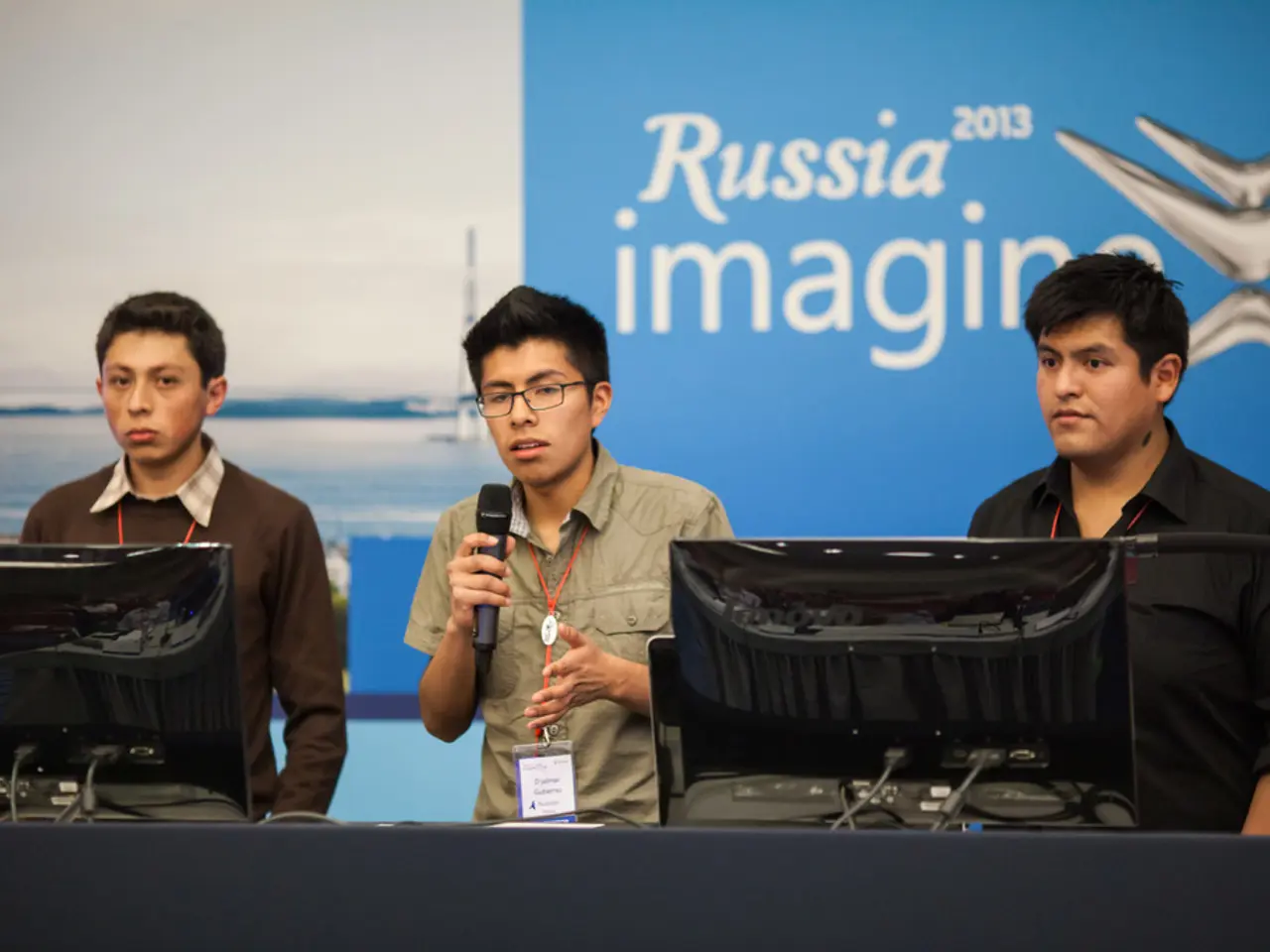Bridging Africa's Technology Skills Deficit through Artificial Intelligence Instruction
In Africa, the integration of Artificial Intelligence (AI) and data science is not just a buzzword, but a significant step towards economic growth and industrial transformation. However, challenges such as limited internet access, unreliable electricity, and a scarcity of AI talent persist.
In Namibia, cattle farmers are leveraging AI systems to optimize feeding schedules, detect anomalies in grazing patterns, and identify early signs of disease. Meanwhile, in Morocco's three largest banks, branches using AI have recorded a 15% increase in monthly revenue. These success stories underscore the potential of AI in Africa's economic development.
The African Union's Continental AI Strategy, a roadmap for addressing issues like ethics, infrastructure, and capacity building, is a key initiative aimed at addressing these challenges. The strategy emphasizes the need for urgent education reform, updating university programs, and fostering critical digital skills to better prepare the continent's youth for the AI-driven job market.
Organizations like ALX, Zindi, and Data Science Nigeria are providing hands-on, locally relevant AI and data science training. These programs have demonstrated success with up to 85% employment rates among graduates, indicating a strong alignment between training and market needs. Major companies such as Microsoft, Intel, and government-led groups are also investing in large-scale training efforts.
However, despite these efforts, challenges remain. Limited internet access, funding constraints, and infrastructural deficits continue to hinder the growth of AI education. To address these issues, initiatives like Microsoft's goal of equipping one million South Africans with digital skills by 2026 and Nigeria's 3 Million Technical Talent program demonstrate significant investments being made in AI education across Africa.
AI could generate over $1.2 trillion to Africa's economy by 2030, potentially adding $180 billion to GDP by 2025. This growth is not just limited to the tech sector; AI-trained professionals are transforming industries and helping African businesses compete on a global scale.
In the healthcare sector, Zipline's operations in Ghana have decreased vaccine stock-outs by 60% and improved medicine availability at health facilities by 10%. Similarly, in Rwanda, Zipline's AI-powered drones have cut blood delivery times by 61% and reduced blood unit expirations by 67%.
Despite the digital divide, Africa now boasts over 2,400 AI companies, with 40% founded in the last five years. These companies are not just solving isolated problems; they are creating entire ecosystems of opportunity. AI is creating new job opportunities, with Dr. Nkem Ochie emphasizing that AI is not replacing jobs but creating entire ecosystems of opportunity.
Remote mentorship programs, such as the Deep Learning Indaba mentorship program, are connecting young AI researchers with experienced professionals across the continent. Collaborations between industry and academia, like Google partnering with African universities to provide hands-on training in AI and machine learning, are becoming more focused.
Training programs that include real-world projects and internships are proving effective in producing job-ready AI professionals. AI training programs are closing critical skills gaps while nurturing a new generation of tech professionals ready to drive innovation, attract investment, and create solutions tailored to Africa's unique needs.
Despite 40% internet penetration in Sub-Saharan Africa, many individuals lack the fundamental skills needed to engage in AI industries. Addressing this skills gap is crucial to closing the AI and data science talent gap and enabling Africa’s digital economy to thrive. The African AI revolution is underway, and with continued investment and commitment, Africa is poised to emerge as a global tech leader.
- The African Union's Continental AI Strategy highlights the importance of urgent education reform, particularly in AI and data science, to equip the continent's youth for the AI-driven job market, promoting personal-growth and learning opportunities within the context of digital inclusion.
- In the startup ecosystem of Africa, digital companies are not just solving isolated problems; they are creating entire ecosystems of opportunity for education-and-self-development, fostering personal-growth, and technological advancement.
- As Africa embarks on its AI revolution, addressing the skills gap in AI and data science through training programs, remote mentorships, and collaborations between industry and academia will be essential for boosting the ecosystem's technology sector, driving innovation, and fostering economic growth.




